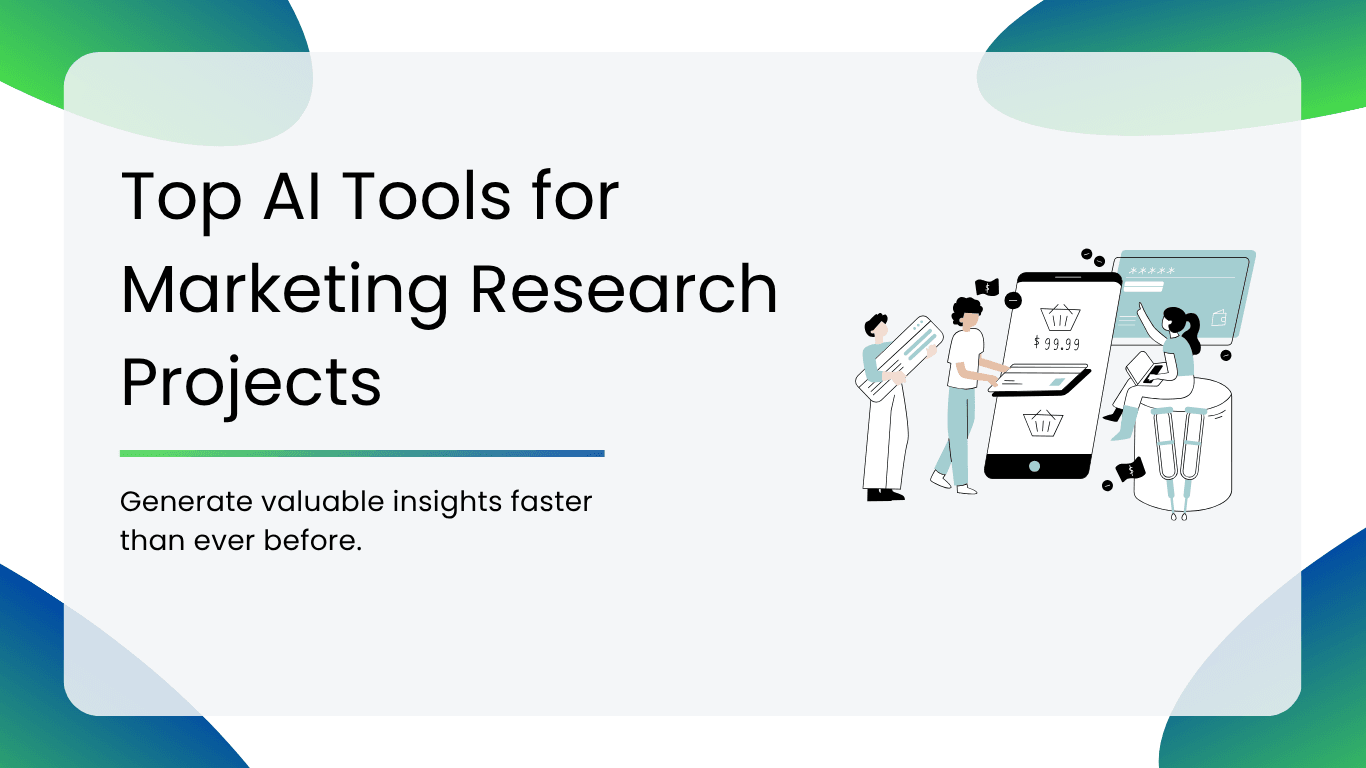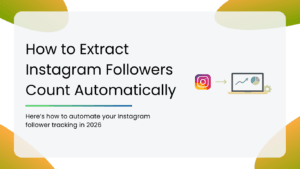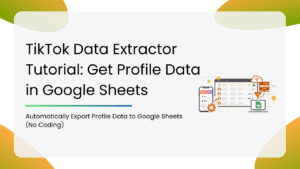In today’s fast-paced digital landscape, businesses rely on market research to stay ahead of consumer trends, refine their strategies, and maintain a competitive advantage. With the rise of artificial intelligence (AI), the way companies conduct market research has undergone a significant transformation. AI-powered tools now simplify data collection, enhance accuracy, and generate valuable insights faster than ever before.
This blog takes a closer look at some of the top AI tools designed for market research. Each tool comes with distinct features, catering to different research needs—whether it’s automating surveys, analyzing consumer sentiment, or predicting future market trends. By understanding their functionalities, strengths, and limitations, you can make an informed decision about which AI tool best aligns with your research goals.
Benefits of AI Tools for Marketing Research Projects
As AI technology continues to advance, integrating it into marketing research projects will be crucial for sustainable growth and success.
- Enhanced Data Collection and Analysis: AI-powered tools can process vast amounts of data in real time. They gather insights from social media, customer reviews, and market trends, providing a comprehensive view of consumer behavior. These tools eliminate human errors and ensure accurate, data-driven insights. With faster analysis, businesses can make informed decisions without delays.
- Improved Audience Segmentation: AI refines audience segmentation by analyzing demographics, behavior, preferences, and past interactions. Machine learning algorithms identify niche markets, helping businesses personalize their campaigns. This leads to higher engagement, better targeting, and improved conversion rates.
- Predictive Analytics for Trend Forecasting: Predictive analytics powered by AI helps businesses anticipate market trends and consumer behavior. These tools analyze historical data to identify emerging patterns, allowing companies to adjust their strategies in advance. From product launches to marketing efforts, AI ensures businesses stay ahead of the curve.
- Automated Competitor Analysis: AI tools monitor competitors by tracking their marketing strategies, pricing models, and customer sentiment. Businesses no longer need to manually analyze large datasets—AI does it in real time. This allows companies to benchmark their performance and identify new opportunities for differentiation.
- Sentiment Analysis for Consumer Insights: Understanding consumer sentiment is crucial for brand reputation. AI-driven Natural Language Processing (NLP) tools analyze reviews, social media conversations, and survey responses to gauge public perception. These insights help businesses refine messaging and improve customer engagement.
- Enhanced Customer Personalization: AI personalizes customer experiences by analyzing behavioral data. It tracks purchase history, user interactions, and preferences to deliver tailored recommendations. Whether through personalized emails, product suggestions, or targeted ads, AI-driven personalization increases customer satisfaction and retention.
AI-powered tools have transformed market research, making data collection, analysis, and decision-making faster and more efficient. Businesses that adopt AI can better understand consumer behavior, predict market trends, and optimize marketing strategies with greater accuracy. This gives them a strong competitive edge in an ever-evolving market.
Challenges of AI Tools for Marketing Research Projects
AI has revolutionized marketing research, but its implementation comes with hurdles. From data privacy concerns to the limitations of AI-driven insights, businesses must navigate several challenges to maximize AI’s potential.
- Data Privacy and Security Concerns: Ensuring compliance with regulations and protecting consumer data from breaches is a major challenge.
- Bias in AI Algorithms: AI can reinforce biases in data, leading to inaccurate targeting and unfair decision-making.
- High Implementation Costs: Advanced AI tools require significant investment, making them less accessible to smaller businesses.
- Complexity in Interpretation: AI generates vast insights, but marketers need data expertise to apply them effectively.
- Dependence on Data Quality: AI-driven insights are only as reliable as the data used; poor data quality leads to misleading conclusions.
- Limited Human Creativity and Intuition: AI lacks emotional intelligence and storytelling abilities, which are crucial in marketing.
Despite these challenges, AI remains a powerful tool in marketing research. Businesses that address these limitations through careful implementation and human oversight can unlock AI’s full potential for data-driven success.
Comparison of Top AI Tools for Marketing Research Projects in 2024
| Platform | Free Trial | Pricing | Customer Support |
| 1. MindPal | Yes | Starts at $39/month | FAQ/Chat |
| 2. SEMrush | Yes | Starts at $139/month | FAQ/Contact form |
| 3. Marketmuse | Yes | Starts at $99/month | Contact form |
| 4. Browse AI | Yes | Starts at $19/month | Chat/Email support |
| 5. Crayon | Not available | Not available | Phone/Email support |
| 6. Zappi | Not available | Not available | Phone/Email support |
| 7. Upwave | Yes | Starts at $8/month | Phone/Email support |
| 8. Pecan | No | Starts at $950/month | FAQ/Email support |
| 9. Quantilope | Yes | Not available | Video Conferencing |
| 10. Hotjar | Yes | Starts at $32/month | Help center |
| 11. Speak | Yes | Starts at $25/month | Chat/Video Conferencing |
| 12. BlockSurvey | Yes | Starts at $24/month | FAQ/Chat/Email support/Video Conferencing |
Top AI Tools for Marketing Research Projects in 2024
| 1. Mindpal |
| 2. SEMrush |
| 3. MarketMuse |
| 4. Browse AI |
| 5. Crayon |
| 6. Zappi |
| 7. Upwave |
| 8. Pecan |
| 9. Quantilope |
| 10. Hotjar |
| 11. Speak |
| 12. BlockSurvey |
1. MindPal
MindPal is an AI-powered platform designed to automate and simplify market research. It offers pre-built AI workflow templates and customizable AI agents, making data handling more efficient. The platform supports multiple data formats and integrates seamlessly with existing tools, allowing professionals to streamline research processes with minimal effort.
Special Features:
- AI Workflow Templates: MindPal offers ready-to-use templates that automate common market research tasks, reducing the need for extensive training.
- Customizable AI Workforce: Users can tailor AI agents to specific tasks, enhancing automation and efficiency.
- Versatile Data Handling: The platform supports various data types, including documents, multimedia, and web data, allowing for comprehensive analysis.
- Tool Integration: MindPal seamlessly connects with popular tools such as Google Drive, Notion, and Dropbox, streamlining workflows and enhancing adaptability.
- Collaborative AI Agents: Multiple AI agents can work together on complex tasks, simulating collaborative human efforts.
- Advanced AI Models: Access to cutting-edge AI models like GPT-4o, Claude 3 Opus, Llama 3, and Gemini 1.5 Pro ensures high-quality outputs.
Pros:
- Time Saving: Efficient automation of tasks significantly reduces research time.
- Productivity Boost: Enhanced workflow efficiency leads to greater productivity, allowing users to focus on strategic planning and execution.
- Customization: Flexible AI agents and workflows cater to specific needs, offering extensive customization options to fit various professional fields.
- Versatile Integration: MindPal handles various data formats and integrates with many tools, enhancing its adaptability.
- Intuitive Design: A user-friendly interface allows for easy creation and deployment of AI agents and workflows.
Cons:
- Limited Language Support: The platform is primarily English-focused, which may limit accessibility for non-English users.
- Self-Hosting Unclear: There is uncertainty about self-hosting options, which could be a drawback for users seeking full data control.
Review: MindPal stands out as a versatile and efficient AI platform for market research, offering a range of features that streamline processes and enhance productivity. Its customizable AI agents, versatile data handling, and seamless integration capabilities make it a valuable tool for professionals aiming to optimize their research efforts. However, potential users should consider language support limitations and the clarity of self-hosting options when evaluating its fit for their specific needs.
2. SEMrush
SEMrush is a leading digital marketing platform that provides in-depth insights into SEO, PPC, social media, content marketing, and competitive research. It is widely used by businesses, marketers, and agencies to analyze website performance, track search rankings, and optimize marketing strategies. In addition to its robust analytical tools, SEMrush offers extensive educational resources, a trusted agency network, and specialized features for local and global marketing campaigns.
Special Features:
- Industry Insights: SEMrush provides comprehensive reports on SEO, PPC, and digital marketing trends, enabling businesses to stay ahead of their competition. Users can analyze competitors’ websites, traffic sources, keyword rankings, and advertising strategies to refine their own marketing approaches.
- Website Traffic and SEO Analysis: The platform offers powerful tools for tracking website traffic, backlink profiles, keyword rankings, and search engine visibility. With features like the Site Audit tool, SEMrush helps businesses identify SEO issues and optimize their websites for better search performance.
- PPC and Advertising Tools: SEMrush allows users to analyze paid search campaigns, discover profitable keywords, and optimize ad spending. It provides insights into competitors’ ad copy, budget allocation, and display advertising strategies.
- Content Hub: The platform offers a suite of content marketing tools, including topic research, SEO content templates, and performance tracking. It helps businesses create high-quality, optimized content that resonates with their audience.
- Local Marketing Hub: Businesses can improve their local search presence through SEMrush’s local SEO tools, which include local keyword tracking, business listing management, and reputation monitoring.
- Educational Resources: SEMrush provides a wealth of learning materials, including webinars, training courses, and certification programs. Users can improve their marketing skills through the SEMrush Academy and stay updated with the latest industry trends.
- Agency Network: SEMrush connects users with a network of marketing agencies and professionals who offer specialized services in SEO, PPC, and digital strategy.
Pros:
- Comprehensive Digital Marketing Insights: SEMrush covers SEO, PPC, social media, and content marketing, making it an all-in-one platform for digital marketers.
- Competitive Analysis Tools: Provides deep insights into competitors’ strategies, helping businesses refine their own marketing efforts.
- Extensive Resources: Webinars, training sessions, and certifications make it a valuable educational tool.
- Local and Global Marketing Capabilities: Suitable for both small businesses looking to improve local search visibility and enterprises managing global campaigns.
- Agency Support: Businesses can collaborate with experienced marketing professionals through SEMrush’s agency network.
Cons:
- Pricing: SEMrush’s subscription plans can be expensive for small businesses and freelancers, making it less accessible for budget-conscious users.
- Steep Learning Curve: While feature-rich, the platform can be overwhelming for beginners who are not familiar with digital marketing analytics.
Review: SEMrush is a powerful and versatile tool for digital marketers, offering everything from SEO and competitive analysis to PPC and content marketing insights. Its extensive database, educational resources, and expert network make it an invaluable asset for businesses looking to enhance their online visibility. However, its premium pricing may be a barrier for smaller users, and beginners may require time to fully utilize its capabilities.
3. MarketMuse
MarketMuse is an advanced AI-driven platform designed to optimize content strategies and improve market research through data-driven insights. It helps businesses, content marketers, and researchers create high-quality, search-optimized content by analyzing competitor strategies, identifying content gaps, and suggesting the most effective keyword usage. By leveraging AI, MarketMuse enables users to enhance their digital presence, improve content authority, and develop data-backed marketing strategies that drive engagement and visibility.
Special Features:
- Objective Insights: MarketMuse scans entire websites and delivers personalized, AI-generated insights to improve content effectiveness. It provides users with detailed research and performance metrics to refine their content planning strategies.
- Content Clusters: The platform helps users create topic-based content clusters that establish authority and improve search engine rankings. By organizing content around key topics, MarketMuse enhances SEO and user engagement.
- Competitive Content Analysis: MarketMuse identifies gaps in competitors’ content strategies, allowing businesses to structure their own content for maximum impact. This feature provides insights into what’s working for competitors and helps users develop superior content.
- Keyword Research: The platform assists in keyword prioritization and clustering, ensuring that content aligns with search trends and enhances domain authority. Users can discover high-impact keywords and optimize their content for better visibility.
- Prescriptive Insights: MarketMuse provides AI-powered content briefs and prioritization recommendations, helping users determine what to create, update, or optimize. These insights ensure that content strategies align with business goals and search engine algorithms.
- Personalized Data: By delivering customized reports based on user needs, MarketMuse supports strategic decision-making and ensures content efforts are targeted and effective.
Pros:
- AI-Powered Insights: MarketMuse offers tailored recommendations that enhance content strategies through advanced data analysis.
- Efficient Planning: Automated content briefs and audits streamline the research and creation process, saving time and resources.
- Competitive Edge: The tool reveals competitor content gaps, helping users develop stronger, more impactful content.
- Enhanced Keyword Strategy: MarketMuse optimizes keyword research and clustering, improving content ranking and authority.
- Data-Driven Decision-Making: Actionable insights allow businesses to prioritize content effectively and refine their digital strategy.
Cons:
- Complexity: The platform’s extensive features and AI-driven approach may be overwhelming for those unfamiliar with advanced content strategies.
- Constant Updates Needed: As search engine algorithms evolve, users may need to regularly update their strategies to stay competitive.
Review: By analyzing competitors, optimizing keyword strategies, and delivering personalized insights, MarketMuse enables users to craft authoritative content that stands out in search results. While the platform offers advanced capabilities that may be complex for beginners, its ability to streamline content planning and provide AI-driven recommendations makes it a valuable asset for those looking to enhance their digital marketing efforts.
4. Browse AI
Browse AI is an advanced web automation tool designed for effortless data extraction and real-time monitoring. With its no-code interface, users can create AI-powered data extraction robots to collect, organize, and track website information with ease. The platform is built for scalability, making it suitable for businesses, researchers, and analysts who need reliable data collection without the complexity of coding.
Special Features:
- Automated Data Extraction: Browse AI enables users to extract specific data from websites and organize it into structured formats like spreadsheets. This makes it easy to analyze and utilize collected information efficiently.
- Real-Time Data Monitoring: The platform allows users to schedule automated data extraction and receive alerts when website content changes, ensuring access to up-to-date information.
- No-Code Interface: Users can build and deploy data extraction robots without any programming knowledge, making automation accessible to a broader audience.
- Scalability and Performance: Browse AI supports up to 50,000 robots running simultaneously, adapting to website layout changes and handling high-volume data needs.
- Versatile Automation Capabilities: The platform can perform a wide range of automated tasks, including solving CAPTCHAs, mimicking user interactions, and extracting complex datasets.
Pros:
- No Coding Required: Anyone can set up and run data-extraction bots with ease.
- Automation of Repetitive Tasks: Reduces manual effort by automating data collection and monitoring.
- Wide Range of Applications: Works across multiple industries, including e-commerce, finance, and digital marketing.
- Scalability and Adaptability: Handles large-scale data extraction needs while adapting to website changes.
- Secure and Reliable: Ensures data security and compliance with privacy standards.
Cons:
- Learning Curve for Advanced Features: While basic tasks are easy, mastering more complex workflows may take time.
- Handling Complex Data Extraction: Extracting intricate data structures may require additional customization.
Review: Browse AI’s scalable infrastructure, automation capabilities, and versatility make it an excellent choice for organizations that rely on real-time data insights. While beginners may need some time to explore advanced features, the platform’s intuitive design ensures accessibility for users of all skill levels.
5. Crayon
Crayon AI is a comprehensive competitive intelligence platform that aggregates real-time market insights from multiple sources, helping businesses refine their strategies and stay ahead of competitors. It specializes in collecting, analyzing, and delivering actionable intelligence, making it an essential tool for sales teams, marketers, and product managers aiming to enhance their competitive positioning.
Special Features:
- Multi-Sourced Information: Crayon AI continuously monitors competitors’ websites, product updates, social media activity, customer reviews, job postings, and other online sources to provide a complete market overview.
- Sales Battlecards: The platform generates dynamic battlecards that provide sales teams with real-time insights to counter competitor strategies, address customer objections, and improve win rates.
- AI-Powered Market Insights: Crayon processes vast amounts of competitive data, distilling key trends and strategic takeaways to support informed decision-making.
- Tool Integrations: Seamlessly connects with CRM systems, collaboration tools, and marketing platforms to integrate intelligence into existing workflows.
- Customizable Dashboards: Users can personalize dashboards to focus on the most relevant competitors, product categories, or industry trends, ensuring they receive insights tailored to their specific needs.
Pros:
- Comprehensive Market Intelligence: Aggregates data from multiple sources for a complete competitive overview.
- Actionable Sales Insights: Battlecards provide structured, real-time intelligence to improve sales effectiveness.
- Seamless Integrations: It connects with various business tools to streamline workflows.
- Customizable and Scalable: Adapts to different industries and competitive landscapes.
Cons:
- Pricing Transparency: Detailed pricing information is not readily available, making cost evaluation difficult.
- Limited Case Studies: Fewer publicly available case studies or success stories compared to some competitors.
- Active User Engagement Needed: To extract maximum value, businesses must actively curate and analyze gathered insights.
Review: By providing real-time insights, automated battle cards, and seamless integrations, Crayon enables teams to make data-driven decisions and outperform competitors. While active engagement is required to fully utilize its potential, the platform’s depth of analysis and customization options make it a valuable tool for businesses aiming to stay ahead in competitive markets.
6. Zappi
Zappi is a research platform designed to accelerate the development and optimization of advertising campaigns and product innovations. By leveraging real-time consumer insights, it enables brands to refine their strategies based on data-driven feedback. Zappi’s platform emphasizes continuous learning, helping businesses iterate on their marketing and product development for maximum impact.
Special Features:
- Agile Research System (Advertising): Allows brands to develop and optimize ads by gathering consumer feedback, ensuring messaging effectiveness and engagement.
- Agile Research System (Innovation): Provides insights for product innovation by validating concepts, packaging, and messaging through iterative consumer testing.
- Agile Learning Loop: Enables brands to continuously refine their ad and product strategies with ongoing consumer insights, reducing guesswork in decision-making.
- Strategic Direction: Offers data-backed guidance for campaign and product launches, ensuring that marketing efforts align with consumer preferences.
Pros:
- Real-World Effectiveness: Co-developed with major brands to ensure practical, actionable insights.
- Rich Diagnostics: Provides detailed data analysis to optimize advertising and innovation strategies.
- Flexible Research Methods: Customizable methodologies tailored to specific industry needs.
- Expert Support: Access to research professionals for collaboration and strategic guidance.
Cons:
- Active Engagement Required: Businesses must be involved in the research process to extract maximum value from the platform.
Review: With its agile approach and continuous learning capabilities, Zappi empowers businesses to make informed marketing decisions and optimize product strategies based on consumer feedback. While the platform requires active participation, its robust diagnostics and expert support make it a valuable tool for companies aiming to stay competitive in a fast-evolving market.
7. Upwave
Upwave is an AI-powered brand analytics platform that helps businesses measure and optimize their brand marketing efforts. Formerly known as Survata, the platform has evolved to focus on brand measurement, enabling marketers to track brand awareness, assess campaign effectiveness, and refine their strategies using real-time insights. Upwave’s data-driven approach ensures accurate and actionable intelligence for making informed marketing decisions.
Special Features:
- Data Quality Improvement: Upwave integrates AI-driven enhancements that filter out low-quality responses. By analyzing response patterns, it detects inconsistencies and improves data accuracy over time.
- Efficiency Boost: The platform automates survey creation, respondent targeting, and data analysis, reducing the manual effort required for market research. It streamlines the research process by offering predictive insights and automated recommendations.
- Survey Fraud Detection: Upwave uses advanced fraud detection algorithms to monitor and remove invalid responses. It can detect duplicate responses, suspicious activity, and even bot-generated inputs.
- Bot Removal: To maintain the authenticity of collected data, Upwave deploys sophisticated AI models that identify and block bots. This prevents automated scripts from tampering with survey results.
- Quality Check Layers: Upwave incorporates multiple layers of quality control throughout the survey process. It checks for inconsistencies in responses, flags rushed answers, and uses pattern recognition to determine respondent credibility.
- Respondent Verification: The platform assigns unique IDs to each respondent to prevent duplicate participation and maintain the integrity of survey results. This ensures that data comes from a diverse and relevant audience.
- Reputation Ranking: A future enhancement, this feature will rank respondents based on their past response quality. By analyzing engagement patterns, response accuracy, and historical participation, Upwave will prioritize high-quality respondents to further improve data reliability.
Pros:
- Automation: By automating survey processes, Upwave significantly reduces manual workload, enabling companies to focus on analysis rather than administrative tasks.
- Real-Time Quality Checks: Upwave applies real-time monitoring and filtering. This prevents bad data from accumulating, ensuring that research results are clean, accurate, and actionable from the outset.
- Fraud Prevention: With its AI-driven security measures, Upwave effectively minimizes fraudulent responses, improving the credibility of market research. This is particularly valuable for businesses, where data integrity is critical.
- User-Friendly Interface: Upwave maintains a straightforward and intuitive design, making it accessible to businesses of all sizes.
Cons:
- Limited Adoption: Traditional research methods still dominate in certain industries, leading to slower adoption of AI-powered solutions.
- Technical Dependency: Heavy reliance on automation may limit qualitative insights. While Upwave excels at quantitative research, deeper qualitative understanding may still require human-led analysis.
Review: Upwave’s automation capabilities, fraud detection, and real-time quality checks ensure that brands receive accurate, reliable data to drive informed decisions. While its adoption may still be growing and qualitative insights might require additional analysis, Upwave remains a valuable solution for companies looking to enhance their research efficiency and data integrity.
8. Pecan
Pecan offers advanced predictive analytics tools tailored for market research and campaign optimization. It enables businesses to forecast key metrics, such as return on ad spend (ROAS), and enhances customer engagement through predictive models. By leveraging AI-powered insights, companies can optimize marketing campaigns, improve customer retention, and streamline demand forecasting. Pecan’s user-friendly interface and fast predictions make it a valuable asset for data-driven decision-making.
Special Features:
- Predictive Analytics: Pecan provides businesses with AI-driven forecasting models to predict crucial performance metrics, such as return on ad spend (ROAS), lead conversion rates, and customer engagement.
- Customer Engagement: Pecan’s predictive models help businesses refine their customer engagement strategies.
- Churn Prediction: Identifies at-risk customers and enables proactive retention efforts.
- Winback Campaigns: Suggests personalized incentives to re-engage inactive customers.
- Upsell & Cross-Sell: Predicts customer purchase patterns to recommend relevant products or services, maximizing revenue opportunities.
- Marketing Mix Modeling (MMM): Pecan evaluates the impact of different marketing channels on overall performance. This allows businesses to fine-tune budget distribution across various advertising platforms for better ROI.
- Campaign Optimization Using SKAN: For companies leveraging Apple’s SKAdNetwork (SKAN), Pecan provides performance insights to refine ad targeting, optimize creative assets, and improve attribution tracking in a privacy-compliant manner.
- Demand Forecasting: Businesses can optimize inventory management by predicting demand fluctuations. This helps reduce stockouts, minimize overstocking, and ensure smooth supply chain operations.
Pros:
- User-Friendly: Designed for both business professionals and data analysts, with an intuitive interface that simplifies predictive analytics.
- Fast Predictions: This generates quick and accurate insights, allowing businesses to act on data in real time.
- Automated Data Preparation: Reduces manual data cleaning and processing, speeding up the deployment of AI models.
Cons:
- Customization Limits: While powerful, Pecan’s models may lack extensive customization options for highly specialized business needs.
- Integration Needs: Additional integrations with niche industry-specific tools may be required to maximize its potential.
Review: Pecan’s AI-driven insights offer a competitive advantage by delivering fast, reliable forecasts for key business metrics. While some customization and integration limitations exist, Pecan remains a valuable tool for organizations looking to enhance decision-making and maximize the impact of their data-driven initiatives.
9. Quantilope
Quantilope provides an AI-driven platform for automated market research, streamlining the entire research workflow from survey creation to advanced data analysis. By leveraging automation, businesses can conduct in-depth research faster and with greater accuracy. Quantilope’s intelligent tools reduce manual effort, offering real-time insights and actionable data visualization, making it ideal for companies seeking efficient and scalable research solutions.
Special Features:
- Automated Survey Setup: Quantilope simplifies the process of survey creation by offering a guided setup that ensures well-structured and optimized questionnaires.
- Advanced Methods Automation: The platform integrates automated versions of complex research methodologies. These features enable users to extract deeper insights without requiring specialized statistical expertise.
- LOI Prediction (Length of Interview): Quantilope predicts how long respondents will take to complete a survey, allowing businesses to optimize question flow and improve completion rates.
- Automated Charting: The platform instantly generates charts and visual reports based on collected data, making it easy to analyze and share insights with stakeholders.
- Emotion and Sentiment Analysis: Using AI-driven sentiment detection, Quantilope analyzes respondent feedback to uncover emotional responses and attitudes, helping understand consumer perceptions at a deeper level.
Pros:
- Efficient Process: Automates multiple stages of research, from survey creation to data analysis, significantly reducing the time and effort needed for execution. Businesses can streamline complex methodologies without requiring extensive manual input.
- User-Friendly: Designed with an intuitive interface, the platform guides researchers through each step, ensuring smooth survey execution and data interpretation.
- Real-Time Monitoring: Provides live tracking of responses, survey progress, and data collection. This allows businesses to make adjustments on the go and ensures faster decision-making based on current insights.
- Qualitative Research Solutions: Supports advanced qualitative research, including video responses and sentiment analysis, offering deeper consumer insights beyond traditional surveys. This feature enhances the richness of market research data.
Cons:
- Learning Curve: While the platform is user-friendly, some advanced features, such as automation settings and in-depth analytics, may require time for new users to fully grasp and utilize effectively.
- Limited Customization: The automation-focused approach may restrict users who require highly tailored research setups, as the platform’s pre-set methodologies may not always allow for extensive modifications.
Review: Quantilope is a powerful, AI-driven market research platform that enables businesses to conduct high-quality research with speed and efficiency. By automating survey creation, analysis, and reporting, it provides actionable insights in real time. The platform’s automation and real-time tracking make it a valuable asset for businesses seeking a streamlined research process.
10. Hotjar
Hotjar is a versatile tool for gathering and analyzing user feedback through surveys, heatmaps, and session recordings. It helps businesses understand user behavior and optimize website performance. Hotjar’s AI-driven features streamline survey creation and reporting, making it a valuable tool for enhancing user experience and increasing conversion rates.
Special Features:
- Fast-Track Research: Automates survey creation, distribution, and response collection, saving time and effort.
- Seamless Survey Creation: Enables quick setup with pre-built templates for different survey goals, such as customer satisfaction, UX feedback, and NPS.
- Automatic Summary Reports: AI-generated reports provide instant overviews of survey results, highlighting key insights and trends.
- Integration: Syncs responses with various tools like Google Analytics, Slack, and CRM platforms for a comprehensive data analysis workflow.
- GDPR & CCPA Compliance: Ensures user data protection with built-in privacy measures, aligning with global security standards.
- Unlimited Surveys: Paid plans offer unlimited surveys and responses, making it suitable for high-volume research needs.
Pros:
- Time-Saving: Automates manual tasks, allowing teams to focus on insights rather than operational processes.
- User-Friendly: Intuitive interface for seamless survey creation, heatmap analysis, and session tracking.
- Accessibility: Available across all plans, including free options, ensuring businesses of all sizes can leverage its features.
- Data Security: Compliance with GDPR and CCPA ensures that user data is securely handled and stored.
Cons:
- Limited Customization: Offers fewer advanced survey customization options compared to dedicated survey platforms.
- Platform Dependency: Best suited for businesses already using Hotjar’s ecosystem for analytics and behavior tracking.
Review: Hotjar is an excellent tool for businesses looking to gain actionable insights into user behavior with minimal effort. Its AI-powered automation and real-time analytics make it an efficient choice for optimizing website performance. However, those requiring deep customization may need supplementary research tools.
11. Speak
Speak specializes in converting audio and video content into actionable text and insights. It offers advanced automated transcription, bulk data analysis, and AI-driven prompts to streamline content processing. Designed for businesses handling large volumes of media, Speak enhances market research workflows by turning conversations into structured, searchable data.
Special Features:
- Automated Transcription: Converts audio and video files into accurate text, enabling quick documentation and analysis.
- Speak Magic Prompts: AI-generated prompts help users extract key themes, trends, and insights from transcribed content.
- Bulk Analysis: Processes and analyzes large datasets efficiently, making it suitable for research teams dealing with high-volume content.
- Integration Capabilities: Seamlessly connects with platforms like Google Drive and CRM tools for smooth data transfer and workflow automation.
Pros:
- Actionable Data: Converts raw media content into structured insights, making it easier to analyze and utilize.
- User-Friendly: It offers a simple and intuitive interface, allowing users to efficiently transcribe and analyze content.
- Integration: Works with various platforms, ensuring seamless compatibility with existing workflows.
Cons:
- Training Requirements: Users may require some initial training to maximize Speak’s full potential.
- Format Limitations: Some less common audio/video formats may not be fully supported.
Review: Speak is a powerful tool for businesses and researchers looking to convert media into insights. Its AI-driven transcription and analysis capabilities make it a valuable asset for content-heavy workflows. However, users working with niche formats may need additional tools for full compatibility.
12. BlockSurvey
BlockSurvey is a blockchain-powered survey platform designed to prioritize data security and respondent anonymity. With its advanced analysis capabilities, including conjoint and Maxdiff analysis, it is particularly useful for researchers handling sensitive data or requiring highly secure survey environments.
Special Features:
- Anonymous Surveys: Ensures complete respondent privacy by eliminating personal data tracking, making it ideal for sensitive or confidential research.
- Conjoint Analysis: Helps researchers understand consumer preferences and decision-making patterns, providing insights into what drives customer choices.
- Maxdiff Analysis: Evaluates user priorities by determining the most and least preferred options, helping businesses optimize their offerings based on real preferences.
- Token Gated Surveys: Restricts survey access through token-based authentication, ensuring that only verified participants can provide responses, reducing spam and irrelevant data.
- Social Media Verification: Verifies respondent identities without compromising privacy, ensuring survey authenticity while maintaining anonymity.
- White Label: Allows full branding customization for a seamless user experience, enabling businesses to maintain a consistent brand identity in their research.
- Repeat Question Feature: Enables tracking of opinion changes over time for longitudinal studies, making it easier to measure shifts in consumer behavior.
- Skip Logic: Adjusts the survey flow dynamically based on previous responses, allowing for more personalized and relevant question paths for respondents.
- Piping: Enhances engagement by inserting respondent answers into follow-up questions, making surveys feel more interactive and tailored to individual responses.
Pros:
- Privacy-Focused: Uses decentralized storage and encryption to keep survey responses confidential, ensuring that user data remains secure at all times.
- Blockchain Technology: Ensures data security, making it ideal for highly sensitive research where trust and anonymity are paramount.
- End-to-End Encryption: Protects data throughout the entire collection and analysis process, preventing unauthorized access and breaches.
- Anonymity Badge: Reinforces trust, encouraging honest and unbiased feedback by assuring respondents that their identities are fully protected.
Cons:
- Integration Limits: May not offer seamless compatibility with all third-party survey tools or platforms, requiring additional workarounds for some users.
- Complexity for Beginners: The blockchain-based setup and advanced features can be overwhelming for first-time users, requiring some learning before full adoption.
Review: BlockSurvey is a powerful solution for researchers and businesses that prioritize data security and respondent anonymity. Its blockchain foundation ensures trust and confidentiality, making it an excellent choice for sensitive or high-stakes surveys. However, new users may need time to navigate its more advanced functionalities.
Selecting the right AI tool for market research can make a significant difference in the accuracy, efficiency, and depth of your data analysis. Each tool comes with distinct advantages and some limitations, so it’s crucial to align your choice with your research objectives, budget, and technical capabilities. By integrating these advanced AI solutions into your workflow, you can refine your market research strategies, make data-driven decisions, and maintain a competitive edge in your industry.
If you’re excited about AI’s potential in transforming industries, explore our other blog posts where we dive deeper into cutting-edge AI tools:
- Best AI Productivity Tools in 2024
- Top AI Tools for Web Development in 2024
- Ultimate List of AI Tools for Coding 2024
- How to Use Predictive Analytics in Data-Driven Marketing
FAQs
The best AI tool depends on your specific needs. Some specialize in survey automation, others in predictive analytics, user behavior analysis, or data security. Choosing the right tool depends on your research goals and budget.
AI automates survey creation, analyzes consumer behavior, predicts trends, and enhances data accuracy. It helps businesses make data-driven decisions faster and more efficiently than traditional methods.
Many AI survey tools prioritize security through encryption, compliance with data protection laws, and privacy-focused features. Always check a tool’s security measures before use.
AI tools enhance market research but don’t completely replace traditional methods. They automate tasks and provide deeper insights, but human expertise is still needed to interpret results and strategize effectively.





